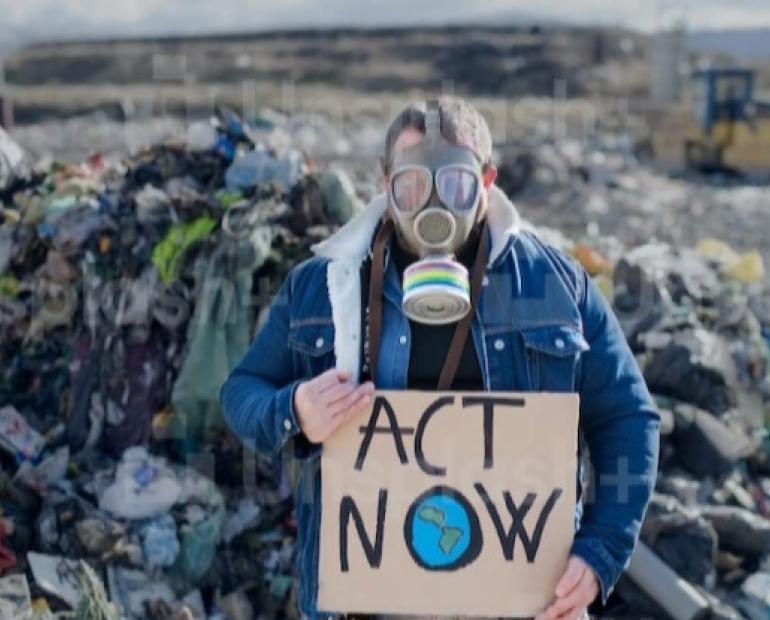
Greetings, esteemed readers! Today, I feel honored to have the opportunity to delve into the critical issue of climate change and its profound implications for Latin American citizens. I am filled with gratitude for the chance to share my insights and shed light on the challenges faced by our region. In this thought-provoking blog post, I will explore the multifaceted problems arising from climate change, outline the potential actions that governments and international leaders can take, and propose actionable solutions that we, as responsible citizens, can implement. So, let us embark on this enlightening journey together, driven by knowledge, wisdom, and the desire to effect positive change.
The Plight of Latin American Citizens:
Latin America, blessed with abundant natural resources and unparalleled biodiversity, is confronting the dire consequences of climate change. The region is experiencing rising temperatures, an increase in extreme weather events, sea-level rise, and shifting rainfall patterns, all of which pose significant challenges to numerous sectors. Agriculture, a crucial source of livelihood for many, is threatened by droughts, floods, and altered growing seasons. Water resources, vital for both human consumption and industrial needs, are increasingly scarce due to changing precipitation patterns and melting glaciers.
Additionally, climate change exacerbates existing socio-economic inequalities, disproportionately affecting marginalized communities. These vulnerable populations often lack the resources to adapt and mitigate the impacts, leading to a higher incidence of food insecurity, waterborne diseases, and displacement. Moreover, indigenous communities, deeply connected to their natural surroundings, face the loss of ancestral lands and cultural heritage due to deforestation, resource extraction, and the encroachment of industrial activities.
The Role of Governments and International Leaders:
Recognizing the urgency of the climate crisis, governments and international leaders must take decisive action to protect the interests of Latin American citizens. Firstly, they must prioritize sustainable development by implementing policies that facilitate the transition to renewable energy sources. By investing in clean technologies, such as solar and wind power, governments can reduce greenhouse gas emissions, foster energy independence, and stimulate economic growth through the creation of green jobs.
Furthermore, governments should establish robust adaptation strategies to enhance climate resilience. This involves developing comprehensive early warning systems, improving critical infrastructure to withstand climate-related hazards, and implementing measures to safeguard vulnerable communities. Adequate social safety nets and support for climate refugees are vital components of adaptation strategies, ensuring that no one is left behind in the face of climate-induced challenges.
Moreover, international cooperation and collaboration are paramount. Latin American nations should unite in regional alliances, sharing knowledge, expertise, and best practices to address common environmental concerns. By actively engaging in international climate negotiations, governments can advocate for ambitious emission reduction targets and promote binding agreements that effectively limit global temperature rise. Investing in research and development initiatives, along with technology transfer, will accelerate the development and deployment of innovative climate solutions throughout the region.
Individual Actions and Responsibility:
While governments play a crucial role, individual actions are equally significant in mitigating climate change. As responsible citizens, we have the power to make a difference through our choices and behaviors. Here are some actionable steps we can take:
- Embrace energy efficiency: Reduce energy consumption by adopting energy-efficient appliances, utilizing public transportation, carpooling, and promoting active modes of transportation such as walking or cycling.
- Conserve water: Practice responsible water usage by repairing leaks, installing water-saving fixtures, harvesting rainwater, and adopting water-efficient irrigation methods.
- Support sustainable agriculture: Favor locally sourced, organic produce, and reduce meat consumption. Promote community gardens, urban farming, and agroecological practices that conserve soil health and biodiversity.
- Reduce, reuse, and recycle: Minimize waste generation by adopting a circular economy approach. Reduce single-use plastics, recycle diligently, and support recycling initiatives in your community.
- Raise awareness: Educate yourself and others about climate change and its impacts. Engage in constructive conversations, utilize social media platforms to disseminate information, and support local environmental organizations and initiatives.
In conclusion, climate change presents significant challenges to Latin American citizens, threatening their livelihoods, health, and well-being. Governments and international leaders must act urgently by prioritizing sustainable development, implementing adaptation strategies, and fostering international cooperation. However, the power to effect change lies not solely in the hands of leaders but also within each one of us. By embracing sustainable practices, raising awareness, and advocating for climate action, we can create a collective force for positive transformation. Let us stand united in our commitment to protect Latin America's natural beauty, safeguard our future, and leave a legacy of sustainability for generations to come.





